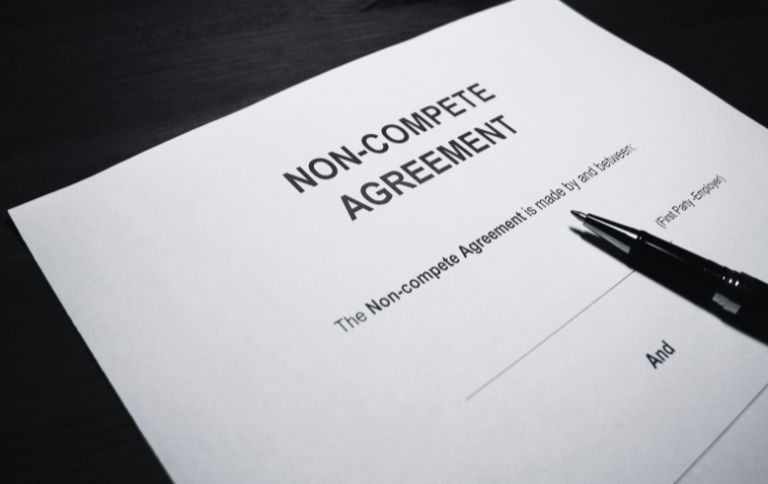In today’s competitive business environment, protecting your company’s assets—whether it’s trade secrets, client relationships, or your workforce—is essential. That’s where restrictive covenants come into play. These legal agreements, which include non-compete, non-solicitation, and non-disclosure agreements, help safeguard your business interests. Understanding how these agreements work and ensuring they’re enforceable under Georgia law is critical for every Atlanta business.
What Are Restrictive Covenants?
Restrictive covenants are contractual clauses that restrict what an employee can do during and after their employment with your company. The most common types of restrictive covenants are:
- Non-Compete Agreements: These prevent an employee from working for a competitor or starting a competing business for a specific period of time and within a defined geographic area.
- Non-Solicitation Agreements: These prohibit an employee from soliciting or doing business with your customers, clients, or employees after they leave your company.
- Non-Disclosure Agreements (NDAs): These agreements restrict employees from disclosing or using your company’s confidential information, such as trade secrets, proprietary data, and business strategies, for their personal benefit or the benefit of others.
Non-Compete Agreements in Georgia
Georgia law places certain limits on non-compete agreements to ensure they are fair and reasonable. The courts typically look at three key factors:
- Timeframe: A non-compete must be limited to a reasonable duration, typically no more than two years.
- Geographic Scope: The restriction must be limited to a specific geographic area. For example, if your business operates only in Atlanta, a non-compete should not prevent an employee from working across the entire state or country.
- Scope of Work: The non-compete should only cover the employee’s specific area of work. For instance, if the employee is a sales representative, the agreement shouldn’t bar them from working in unrelated roles in different industries.
A well-drafted non-compete agreement can protect your business while still being enforceable under Georgia law. However, an overly broad agreement can be struck down in court, leaving your business vulnerable.
The Importance of Non-Solicitation Agreements
While non-compete agreements protect your business from direct competition, non-solicitation agreements are focused on preventing the poaching of your clients and employees. These agreements are crucial for businesses in Atlanta where customer relationships and talented staff are key assets.
Non-solicitation agreements ensure that former employees cannot lure away your clients or encourage your employees to join them at a new company. This type of agreement typically includes:
- Client Solicitation: Preventing former employees from contacting or working with clients or customers they interacted with during their employment.
- Employee Solicitation: Restricting former employees from recruiting your current employees to join a competing business.
When properly drafted, non-solicitation agreements help prevent disruption to your business’s operations and retain the value of your client relationships and workforce.
Non-Disclosure Agreements (NDAs)
Confidentiality is critical to any business, particularly in industries that rely on proprietary information, trade secrets, and innovative ideas. NDAs protect your company’s sensitive information by preventing employees from sharing it with outside parties.
An NDA should be specific about what information is considered confidential, the duration of the confidentiality obligation, and any exceptions to the restriction (such as disclosures required by law). Ensuring that your NDA is clear and enforceable under Georgia law helps safeguard your company’s intellectual property and trade secrets.
Enforceability in Georgia
Georgia has specific laws governing the enforceability of restrictive covenants. The state’s Restrictive Covenants Act, passed in 2011, provides guidance on how these agreements should be structured to ensure they are enforceable in court. To avoid legal challenges, it’s essential to make sure your restrictive covenants are reasonable in scope, duration, and geography.
Georgia courts will not enforce overly restrictive agreements. That’s why it’s crucial to work with an experienced attorney who can draft or review your restrictive covenants to ensure they comply with state law while providing maximum protection for your business.
Why Your Business Needs Legal Expertise
Restrictive covenants are a powerful tool for protecting your business, but they need to be tailored to your specific needs and comply with Georgia law. Working with an attorney experienced in employment law and contract drafting is essential for creating enforceable agreements that safeguard your company’s interests.
Whether you’re looking to implement new restrictive covenants or need to review existing agreements to ensure they are up to date and compliant, our law firm is here to help. We specialize in helping Atlanta businesses protect their assets through well-crafted non-compete, non-solicitation, and non-disclosure agreements.
Conclusion
Restrictive covenants—such as non-compete, non-solicitation, and non-disclosure agreements—are critical for protecting your business in Atlanta’s competitive market. Understanding these agreements and ensuring their enforceability under Georgia law can save your company from legal disputes and protect your valuable assets.
If you need assistance with restrictive covenants for your business, contact our experienced legal team today. We can help you develop, review, and enforce agreements that safeguard your business’s interests.




